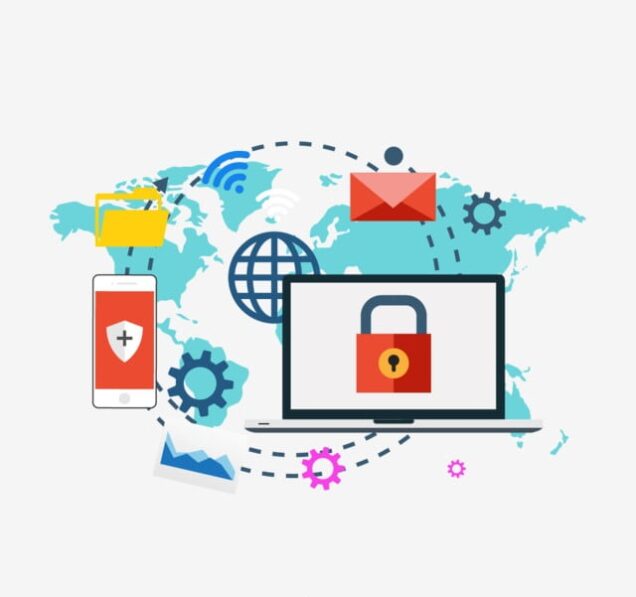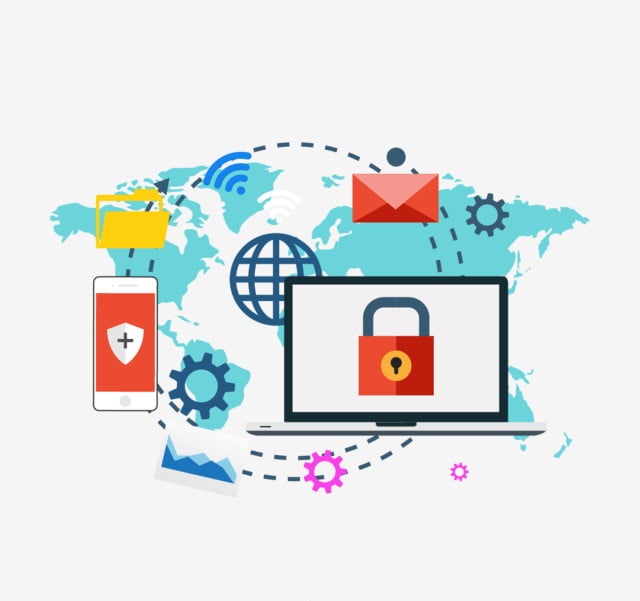Cyber threats have become so boundless that the United States national government has executed an innovative work division intended to define an arrangement to foster innovation and make approaches that limit the likely dangers on the internet. With the ascent of web-based media destinations and organizations, individuals are driving more close-to-home data accessible to the internet-based world, making it harder to secure necessary information.
Luckily, there is an assortment of ways of securing your internet-based character and individual data. To know more about solving the other prominent issues, visit ValidEdge. As the level of the people utilizing the web increases, so does the risk of security compromise increases. Here are a few methods that you can include in your day to day life to prevent your private data while accessing the internet
1. Turn on web browser blacklisting
The absence of web security is somewhat because of the utilized web program. Many internet browsers have extra security choices, for example, boycotting. This allows you to set the standards for locales you will explore; just secure, believed destinations will be accessible to visitors.
2. Permit cookies on your web browser only when required
One more choice for setting up your program to secure your internet-based information is empowering treats just when needed by a site. These treats are subtleties sites stored on your PC, including data regarding what locales you visit and what you do there. The majority of them hush up about the subtleties, yet this is additionally a way deceptive individuals get your data. However, you need to be empowered to restrict them just to sites that require it.
3. Get private data protection
One more method for ensuring your internet-based character and touchy data when sharing it online is to get private information insurance. This sort of safety suite will provide any confidential information remembered for messages, private courier programs, web-based media destinations, or in different sites. By utilizing a personal information security suite, you can also keep your data from social occasions.
4. Use a strong password for all the accounts and Wi-Fi network
A remote switch that gets to the web at your home or business ought to consistently be secret word secured. When you don’t have a private key on your remote system, anybody in your reach can utilize and get to your web, even a programmer. A programmer with experience carrying out digital wrongdoings will use this for their potential benefit and take data from your PC while getting to your switch. You ought to likewise empower the encryption highlight on the remote switch, which scrambles any information you send online to secure your touchy information additionally.
5. Stay away from phishing scams
Phishing tricks utilize various techniques to get your data and take your character. There are various phishing tricks out there. However, you can try them by teaching yourself the most proficient method to remember them. To abstain from being the casualty of a phishing trick, never open messages or connections when the sender is obscure, and don’t tap on unstable connections from creepy messages. Furthermore, stay away from anybody offering cash, new open positions, or demands for gifts to a good cause, as this may be a plot to get your data and online character.
6. Use private mode while browsing
If you don’t want your PC to save your search history, brief web documents, or treats, do your web surfing in private mode. Internet browsers offer variants of this type of security. In Chrome, it’s called by the name Incognito Mode. Firefox calls it Private Browsing, and Internet Explorer utilizes InPrivate Browsing for its protection. During the search with these modes turned on, others will not have the option to follow your perusing history from your PC.
7. Utilize an alternate web search tool
Assuming that you’re similar to many web surfers, you depend vigorously on Google as your web search tool. Security is one explanation individuals like to utilize unknown web indexes. This web search tool doesn’t gather or share your inquiry history or snaps. Unknown web indexes can likewise hinder advertisement trackers on the sites you visit. In any case, you don’t need to.
8. Be vigilant where you click
One of the ways by which programmers undermine your web-based security is through phishing endeavors. In phishing, tricksters attempt to fool you into giving important monetary or individual data. They’ll regularly do this by sending fake messages that seem, by all accounts, to be from banks, Visa suppliers, or other monetary foundations.
Often, these messages will say that you should tap on a connection and check your financial data to hold your record back from being frozen or shut. Try not to succumb to these tricks. Assuming you click on a phishing join, it could take you to a caricature website page that resembles the landing page of a bank or financial foundation.
In any case, when you enter your record data, you’ll send it to the con artists behind the phishing endeavor. Before tapping on dubious connections, drift your cursor over the link to see the objective URL. Don’t click if it doesn’t coordinate with the monetary site you use.
9. Utilize quality antivirus programming
At long last, consistently introduce antivirus programming on the entirety of your gadgets. This product can keep programmers from assuming control over your PC, getting to your own and monetary data, and following your area. Makers often update their infection insurance programming to safeguard against the most recent malware, spyware, and other infections. Introduce refreshes when they become accessible or set up programmed refreshes on the entirety of your gadgets.


